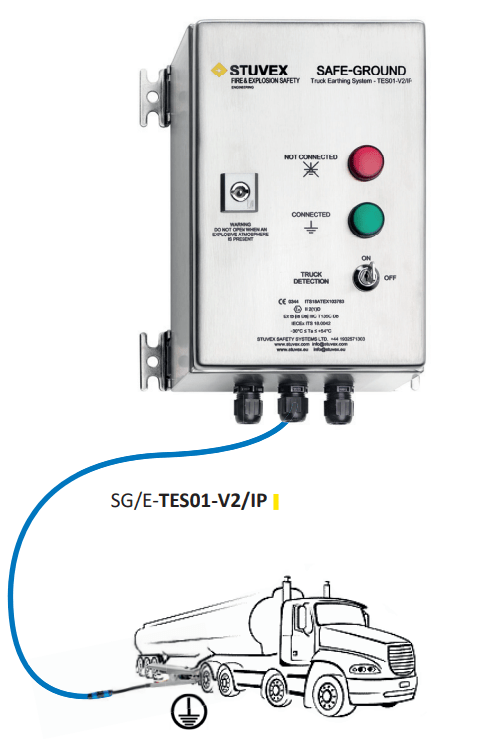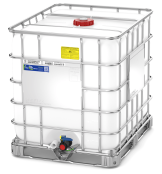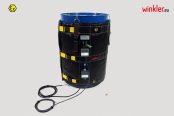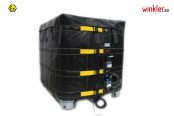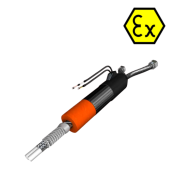Truck Earthing | How Does Effective Earthing Prevent Hazardous Electrostatic Discharges?
Published 20 Mar 2024
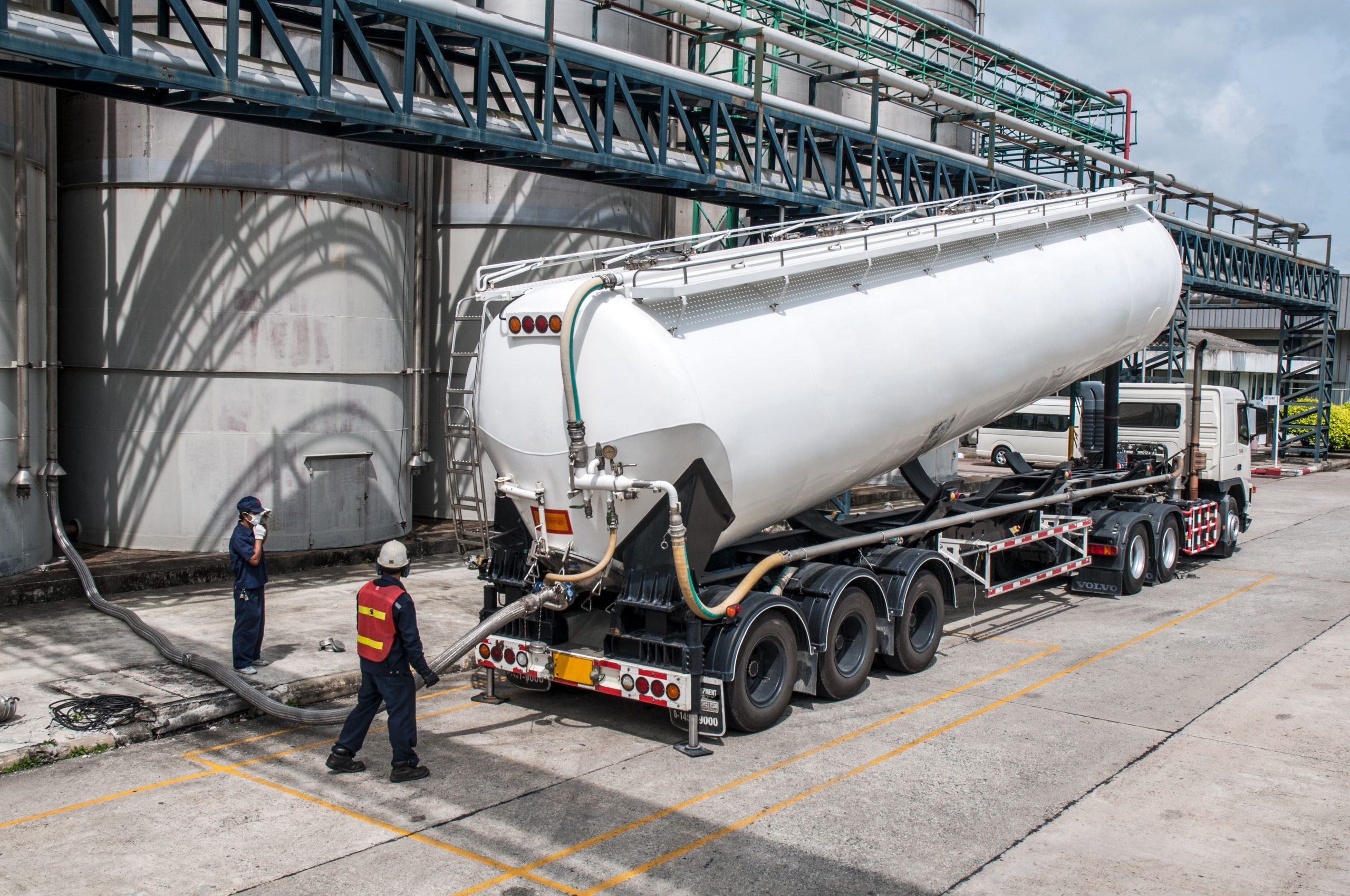
Truck Earthing
Preventing Hazardous Electrostatic Discharges
The total energy discharge of a person is about 10mJ. Likewise, small items such as metal buckets can be easily charged to an energy level of a few mJ, which is already more than the minimum ignition energy (MIE) required to ignite most flammable vapors.
Anyone walking on non-conductive floor coverings can be charged to a voltage as high as 20,000 V!
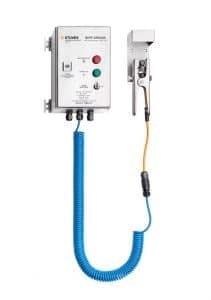
It is therefore not difficult to imagine that the energy discharge of a charged truck or bulk truck can reach up to 100 mJ. The above makes it clear that the correct earthing of a truck during loading is crucial.
For example, if a relatively small truck with a capacity of 1000 picoFarad is charged to 14 kV, it has a potential spark energy of 100mJ. Most hydrocarbon vapors and gases have MIE’s of less than 1mJ, it is clear that any tanker without proper earthing will be large potential ignition source in a hazardous area.
▶ Thorne & Derrick together with StuvEx supply static bonding, static earthing systems and grounding solutions to the hazardous area EX industries with over 35 years experience.
Why Earth a Truck?
- Eliminate explosion risk occurring during truck loading/unloading
- Safe discharge of electrostatic charge without sparking
- Verification if the connection is to a tanker truck
- Visual status indication and interlock with control system
- Firm connection to ground during conveying
- Continuous monitoring of the clamp connection
Norms and standards
The available standards, especially IEC / TS 60079-32-1 (Electrostatic hazards, guidance), describe processes where static charges can be generated, such as loading trucks and train wagons, filling and emptying of mobile tanks and vessels and mixing / mixing and transporting substances.
Other relevant standards: NFPA 77 (Recommended Practice for Static Electricity) and the API RP 2003 (Protection Against Ignitions Arising out of Static, Lightning, and Stray Currents). This standard specially highlights the loading of trucks, railway wagons, storage tanks and general work at petroleum products.
According to standards, effective earthing is the primary preventative to prevent hazardous electrostatic discharges and is the simplest, safest and most cost effective way to ensure that static hazards are properly controlled. Safely getting rid of static build-up will eliminate the risk of static discharges.
IEC/TS 60079-32-1 only indicates that an earthing cable must be provided. In theory, a cable would therefore suffice.
Nevertheless, to avoid forgetting to earth the truck, an interlock earthing unit is recommended.
The truck may also already be electrically charged upon arrival at the unloading site. Hence, with a good earthing unit, the earthing clamp should ideally be insulated from the ground, and only connect to the “earth” after the clamp is connected to the tanker. This prevents the generation of a (potentially dangerous) spark when the clamp is attached to the truck.

The TES01 truck earthing system is available in two versions:
- TES01/IP (suitable for installation in ATEX zone 22)
- TES01/EX (suitable for installation in ATEX zone 1/2)
DIFFERENCES BETWEEN TES01-V1 and TES01-V2
TES01-V1
- Plastic key
- IP version: Coated cabinet
- -20°C to +40°C
- < 30 Ohm
- Not IecEx
TES01-V2
- Metal key
- IP version: SS cabinet
- -30°C to +54°C
- < 10 Ohm
- IecEx certified
- Switch capacity: std. A
Further Reading
- Thorne & Derrick Appointed UK Exclusive Channel Partner of StuvEx Static Earthing Systems
- Static Earthing Control For Road Tankers | Is Truck Grounding Necessary?
- Innovative Multi-Point Earthing System from StuvEx
STUVEX SAFE-GROUND
PRODUCT RANGE
Should you require any customer support or service to enable the selection or specification of the correct Static Earthing Systems for use in explosive atmospheres please do not hesitate to contact us.
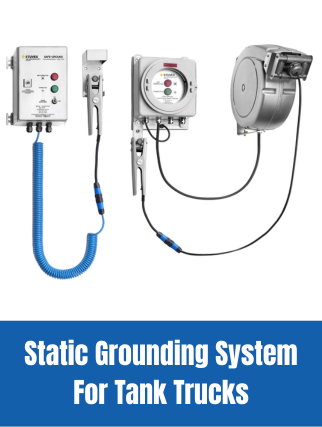 |
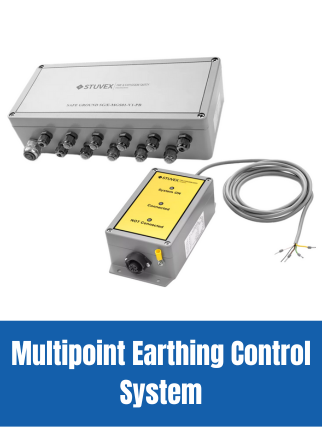 |
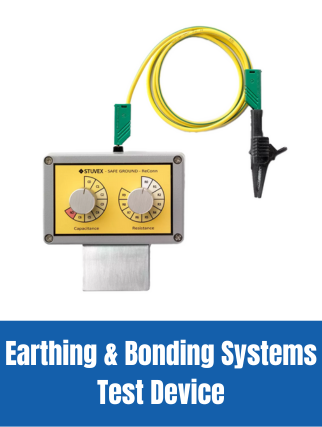 |
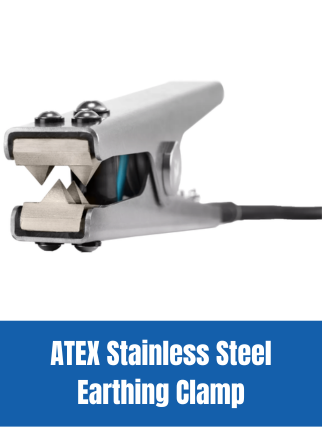 |
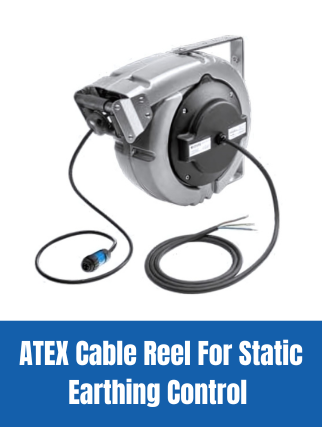 |
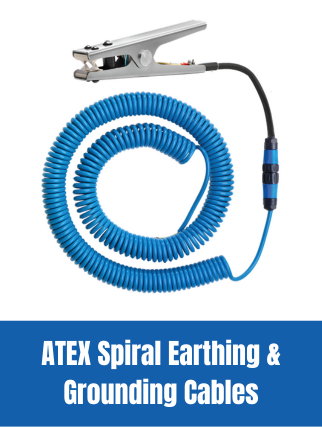 |
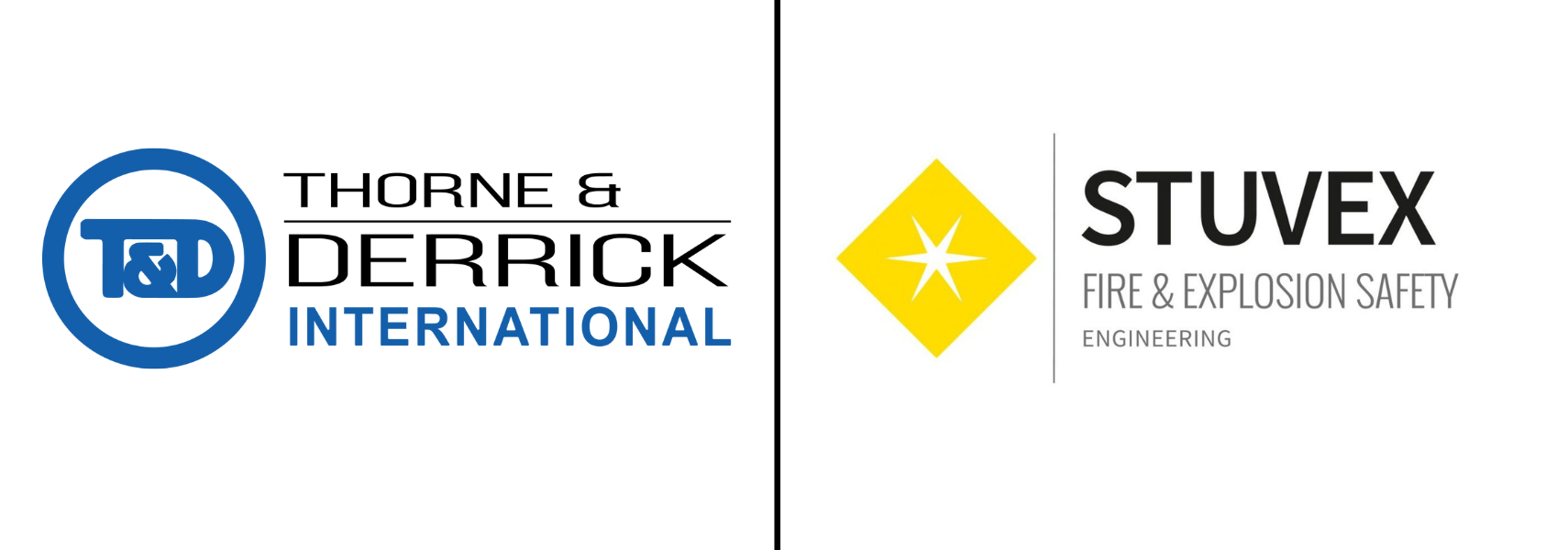
⚡ Thorne & Derrick is now working in partnership with StuvEx and in close client consultation to highlight awareness, education and mitigation of ignition risk associated with static electricity. Discharges of static electricity pose health and safety dangers to people and plant, contact us today to discuss your concerns.

